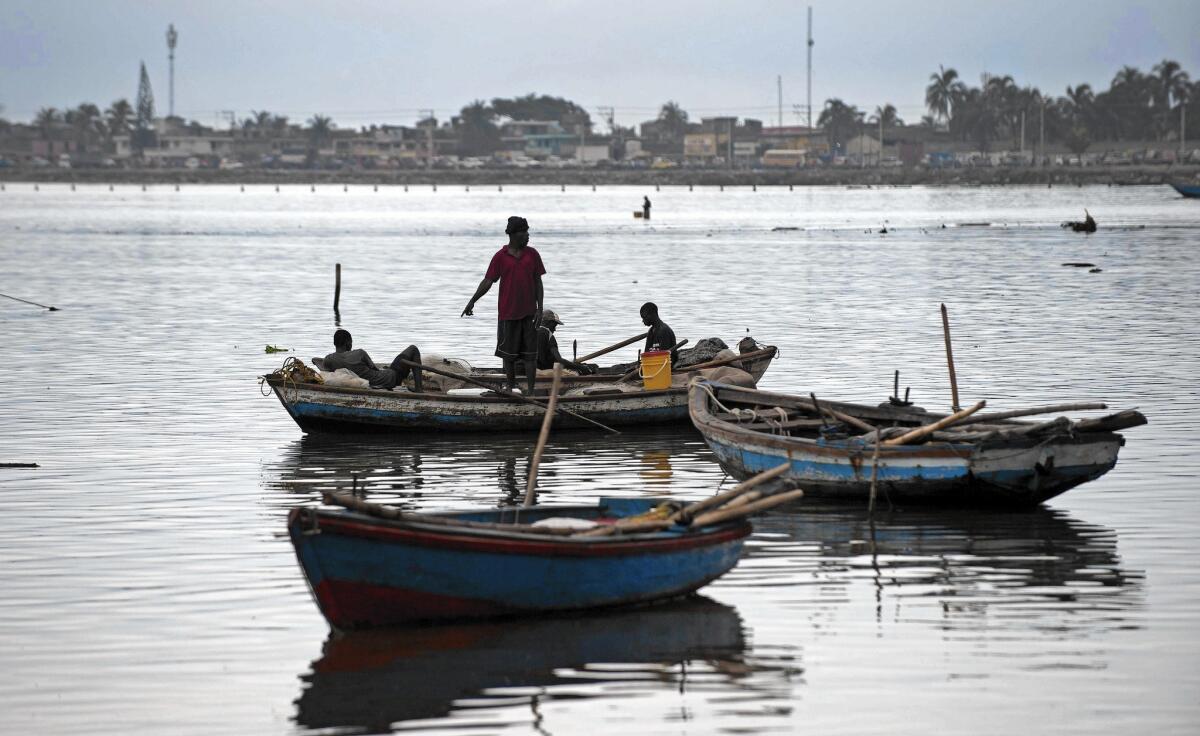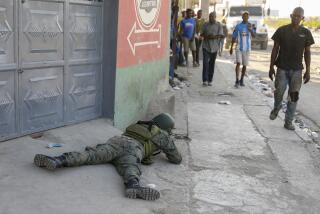Haiti triggers travel alert over medical and crime concerns

- Share via
Haiti pops up on the U.S. State Department’s warnings (longer-term issues that often involve safety) and its alerts (usually for events of immediate interest) issued this month.
The alert, dated Aug. 7, notes that elections Oct. 25 and Dec. 27 could create unrest.
The alert was issued just ahead of the Aug. 9 elections, which were marred by disorder and violence; Agence France-Presse reported that two people were killed.
The warning, issued Aug. 5, reminds potential visitors they may have trouble if they need emergency medical help.
“Some U.S. citizens injured in accidents and others with serious health concerns have been unable to find necessary medical care in Haiti and have had to arrange and pay for medical evacuation to the United States,” the warning said, adding that medical evacuation insurance might be appropriate.
Kidnapping and robbery also continue to be a problem, the latter a particular issue for people who are driving in from the airport. From May to October of 2014, 64 such robberies were reported. Visiting a bank in Port-au-Prince also may make you a target, the State Department warning said.
In January 2010, a 7.0-magnitude earthquake struck Haiti. The Haitian government said more than 300,000 people were killed, although that number is disputed. The country continues to struggle to recover from the quake.
Haiti is one of the poorest countries in the world, according to the World Bank. Almost 60% of its 10.4 million residents live below the poverty line, the World Bank said.
Europe lands on caution list
The State Department late last month updated its Worldwide Caution issued in January. It’s essentially a checklist of places where U.S. citizens may find themselves in harm’s way.
Europe is not immune from anti-American feeling (and action); the warning notes that, besides attacks in France, incidents in Belgium and Denmark point to ongoing security concerns for U.S. travelers.
The warning also contains this line: “Private U.S. citizens are strongly discouraged from traveling to Iraq, Syria, or any other country to join in armed conflict.”
Thailand explosion causes worry
Thailand wasn’t mentioned in the State Department warning, but the warning was issued before the recent explosions in Bangkok. Investigators were still trying to determine who was responsible for the blasts at a Hindu shrine and a ferry pier, both places tourists might be. At least 20 people were killed, and more than 120 injured in the shrine attack. No one was injured in the attack at the pier. It was unknown last week whether the blasts are related.
The country has been under the control of the military since a coup in May 2014.
Ecuador bans climbers on volcano
Cotopaxi, a volcano that’s less than 50 miles from Quito, Ecuador’s capital, has exploded four times in recent days, spewing ash and spurring the government to declare a state of emergency.
Ecuadorean scientists have said they do not think this is a precursor to a major eruption, Associated Press reported.
For now, climbers are banned from ascending the 19,600-foot peak, and access to the park that surrounds it is limited.
New flag for New Zealand?
About 10,000 New Zealanders have designs on a new flag.
That’s the number of designs submitted as candidates to replace the “too-much-like-Australia” flag that flies over the country. Some complain that Prime Minister John Key is trying to distract Kiwis from more important issues. They also say it’s a big ($17-million) waste of money.
Forty finalists have been chosen. Many designs show a silver fern, a koru (the spiral derived from Maori art) or the Southern Cross. Opponents say that some of the flags look like an attempt at branding.
Sources: U.S. State Department, Associated Press, Bangkok Post, Christian Science Monitor and Agence France-Presse.
More to Read
Sign up for The Wild
We’ll help you find the best places to hike, bike and run, as well as the perfect silent spots for meditation and yoga.
You may occasionally receive promotional content from the Los Angeles Times.







